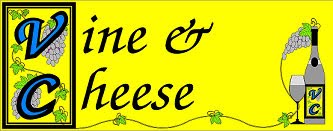This Friday, March 8th from 5 to 7pm, David Hobbs of Prime Wines joins us for an exposition of Paso Robles wines from Castoro Cellars. Castoro Cellars is located in Templeton, California and owns eight separate vineyards comprising 687 acres with 200 dedicated to Cabernet Sauvignon, 88 planted in Chardonnay, and 62 in Merlot. All Castoro Cellars vineyards are SIP certified (sustainability in practice - sipcertified.org) and 270 acres of their 687 are certified organic.
The reason we're writing about Paso Robles now, aside from promoting Friday's tasting, is to continue our recent discussions of Central Coast wines. Paso Robles is one of thirty American Viticultural Areas (AVA) within the Central Coast, which is an AVA, itself. The Paso Robles AVA is the largest geographical appellation within the Central Coast containing 617,000 acres with 26,000 currently planted in vineyards by the 180 commercial wineries now operating there. The appellation was first established in 1983 and twice enlarged since then, in 1997 and 2009.
An AVA in theory should have geographical boundaries. For the Paso Robles AVA, a rectangle 35 mile wide and 25 miles in length, the eastern boundary is the Cholane Hills range while the western boundary is the Santa Lucia Coastal Mountain range. Paso Robles is six miles from the Pacific Ocean. The northern and southern boundaries are less definitive but a feature worth noting would have to be the Salinas River and its basin between the two ranges. The vineyard topography of Paso Robles includes the rolling hills and mountains just mentioned and the flat lands around the river basin. Because of such environmental diversity Paso Robles boasts forty five different soil types.
Shale, or "mudstone", is one of the most common of all sedimentary rocks. It is comprised of clay and silt, hardened into stone over centuries, and then because it is "laminated" (thin layers) and "fissile" (readily splittable) it degrades into an ideal vineyard soil. Paso Robles has more of this kind of soil than any other AVA. Combine with that, the weathered granite, volcanic rock, and marine sedimentation from different epochs and this kind of soil will support root structure, provide drainage, and add minerals and nutrients like calcium, iron, nitrogen, phosphates, and potassium. One vineyard website boasts that its soils produce wines that "naturally restrict yields while promoting firm structure and pure fruit expression". Whew!
This week's tastings include a Thursday evening event from 5 to 7pm with David Rimmer of Artisan Vines and Friday evening from 5 to 7pm with David Hobbs of Prime Wines. Both Davids are wine industry veterans so start thinking of those wine questions you have always wanted answered and pose them to these guys. And please become a "follower" of this blog so I don't feel like such a loser writing these.
Monday, March 4, 2013
Subscribe to:
Post Comments (Atom)




No comments:
Post a Comment